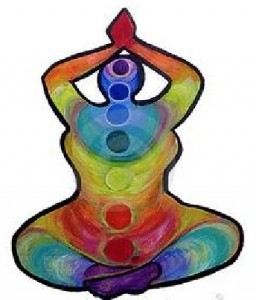A student recently asked me how she could get her arms into Eagle.
I started by looking at her try to approach it.
Her elbows barely cross one another and her forearms are nowhere near touching.
I then focused on the back of her shoulders and told her she was very tight back there. She would need to work to get that space – the back of her heart – more open before the Eagle arms would start to develop.
She thanked me for that.
She said she had asked another teacher recently about the pose but got a “yoga bullshit answer.” Something about it’s not about the pose and accept where your body is right now.
The student is in my 2eXceL class. A yoga class for curvy and bigger bodies.
But the student doesn’t want her yoga class to mean “can’t.”
I understand that.
We want to claim the strength and “can” in our yoga practices in the bodies we’re in, not the future body we or society is telling us we should strive for.
We don’t offer the 2eXceL class to remove bigger bodies from other classes. It’s on the schedule to offer a safe space to explore and claim our bodies in a positive way. Learning to be comfortable moving and stretching our bodies takes practice when we have actively scolded, insulted, berated and hated ourselves.
It might take some private space and time to change that conversation. Or at least time with folks we don’t feel will judge how we look in our yoga clothes, how we move or what we have to move to get into a pose.
But the yoga class isn’t watered down. We sweat. We find power poses. We find inversions. We find balance.
I often say in my classes that “the only limitations we face are truly self-imposed.”
I honestly believe that.
Once we say we can’t do something we stop ourselves, not anyone else.
Still, it’s hard to go into a lot of general yoga classes and be confident if no one looks like you and the environment doesn’t invite you to find a way to be included but instead tells you to sit this one out.
Yoga and our greater society has a long way to go in accepting all our brothers and sisters. We shouldn’t make people have to prove their worthiness “despite” a size, or a gender or a sexual identification or a race.
When we tell a student they shouldn’t focus on the look of a pose, sometimes it is saying to that person, “you’re never going to do this.”
And if we’re telling them they can’t or shouldn’t think about it (even if you can do it), aren’t we being elitist? Are we teaching or is it a copout? And if we are teaching, what are we teaching?
Friends and the interwebs have recently shared some thoughts on body image recently.
One got me thinking about whether even if I offer a bigger body class are we still sending the message that you’re not good enough.
“Let’s talk about thin privilege” goes into the privilege thin people have and how their perspective will never be that of a bigger person and how even the most well-intentioned statement can come across as condescending.
It breaks down exactly how pervasive our negative attitude is toward people who are larger and how we twist “self improvement” to mean “we will approve you…if…”
“Oh, Yah! You are Beautiful!” is written by my friend Lynn. It’s a candid reflection on weight, body image and beauty. She stresses us to find all the pretty things about ourselves. Our eyes, our hands, our hair. None of us is perfect. But all of us have something that’s amazing.
Celebrate it. Primp it up. Strut your stuff.
That’s what I think yoga helps us all find. We peel away the garbage that society and our own negative self image have us believing and we see all the bright shiny awesome parts about ourselves and we claim it and celebrate it.
Yoga offers us a space to find our true, authentic selves and to abide in our true nature.
Not find your future self and love that person when it happens.
And not, love yourself even if you can’t do “x.”
It’s putting love in a “despite x” mode. So it’s not unconditional. There’s still something missing.
I hope more of us can find a yoga practice that helps us to excel at being our best selves in teaching and in practice, no ifs, ands or buts.
